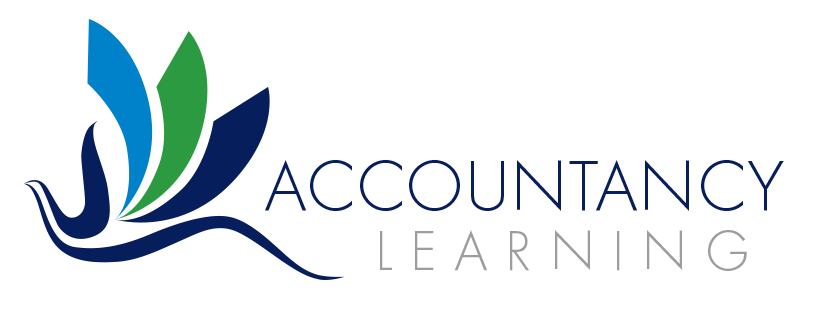Well, in just a week, the Paralympics will kick off in Paris, where up to 4,400 athletes from across the globe will compete in 549 medal events across 22 different sports. It’s set to be a spectacular showcase of athleticism, determination, and, naturally, a healthy dose of corporate sponsorships.
As the world cheers on these incredible athletes, it’s important to remember how it all started. The roots of the Paralympic Games can be traced back to Stoke Mandeville Hospital in England, where Sir Ludwig Guttmann organised the Stoke Mandeville Games in 1948 for veterans with spinal cord injuries. This event laid the groundwork for the first official Paralympic Games in Rome in 1960, where 400 athletes from 23 countries competed in just eight sports. Today, the Paralympics have blossomed into a global spectacle, showcasing resilience, talent, and, of course, the growing importance of sponsorships. Behind the scenes, accountancy keeps the financial pieces of this multi-billion-pound puzzle falling neatly into place
Early Paralympic Sponsorships: The Foundation Years
1960 Rome Paralympics
The first official Paralympic Games in 1960 were nothing like the mammoth event we see today. They were a modest affair, primarily funded by the Italian government, charitable donations, and a bit of goodwill. Corporate sponsorships? Not even on the radar. The focus was squarely on providing athletes with disabilities a platform to compete, with little thought given to commercial partnerships.
1964 Tokyo and 1968 Tel Aviv Paralympics
The next few Paralympics followed the same pattern, relying on government support and local organisers’ enthusiasm. Corporate sponsors were about as rare as an umbrella in the Sahara, with funding drawn from charitable sources and public funding. The Games themselves were still very much a grassroots operation, focused on participation rather than profit.
The Rise of Corporate Sponsorships
1988 Seoul Paralympics
The tide began to turn at the 1988 Seoul Paralympics, which were held in conjunction with the Olympic Games. Corporate sponsorships started to creep into the picture. It wasn’t quite the avalanche we see today, but it marked a shift toward the commercialised landscape of modern sports sponsorship. Companies began to see the potential of aligning their brand with this growing movement.
1992 Barcelona Paralympics
The 1992 Paralympics in Barcelona marked a real turning point. For the first time, the Games received significant corporate sponsorships, with big names starting to dip their toes in the water. These sponsorships brought much-needed financial support, helping to raise the profile of the Paralympics on a global stage and laying the groundwork for the future.
Modern Paralympic Sponsorships: A Financial Giant in the Making
Tokyo 2020 (held in 2021)
By the time we reached the Tokyo 2020 Paralympics (delayed to 2021, thanks to a certain pandemic), sponsorships had become a financial force to be reckoned with. The Games pulled in approximately £500 million in sponsorship revenue, with global heavyweights like Toyota, Allianz, and Visa leading the charge. Despite the challenges posed by COVID-19, sponsorship revenues remained resilient—a testament to the growing commercial importance of the Paralympics.
Rio 2016 and London 2012
The Rio 2016 Paralympics brought in around £200 million in sponsorship revenue, while London 2012 set new benchmarks with approximately £250 million. These Games proved that Paralympic sponsorships weren’t just a side hustle; they were becoming central to the financial structure of the event, with major corporations seeing the value of aligning their brands with the Paralympic movement.
Paris 2024
As we look ahead to Paris 2024, sponsorship revenues are expected to continue their upward trajectory, potentially reaching between £400 million and £600 million. The likes of Coca-Cola, Samsung, and BP are expected to play key roles, underlining the ever-growing value of Paralympic sponsorships as a global marketing and financial force.
The Role of Accountancy in Olympic Sponsorships
Revenue Recognition
In the early days of the Paralympics, sponsorships were as informal as a village fete bake sale. Today, sponsorship revenue is recognised according to accounting standards like IFRS or GAAP. Accountants ensure that every bit of income is carefully recorded in the financial statements, adhering to strict guidelines to ensure accuracy and transparency.
Financial Reporting
Gone are the days of casual income statements and rough budgeting. Modern Paralympic accounting involves detailed financial reports, with sponsorship income becoming a significant line item. These reports meticulously break down sponsorship contributions from global and local partners, providing stakeholders with a clear view of how sponsorships are driving financial success.
Cost Management
Early Paralympic budgets were straightforward affairs, akin to managing a small charity event. Now, however, Paralympic budgets are as complex as any major international event, with costs ranging from venue construction to media production. Accountants play a crucial role in tracking and managing these costs, ensuring that sponsorship funds are allocated efficiently and that financial control is maintained with laser-like precision.
Sponsorship Agreements and Valuation
In the past, Paralympic sponsorships were more informal—think handshakes and promises. Today, they involve complex legal agreements with substantial sums on the line. Accountants are responsible for valuing these deals, assessing in-kind contributions, and managing the financial implications of various contractual terms. It’s no small task, but someone’s got to do it.
Financial Audits
The early days of Paralympic financial audits were about as relaxed as a casual afternoon tea. But now, the Games are subject to rigorous and comprehensive financial audits. Independent auditors meticulously review financial statements, ensuring that sponsorship revenue and expenditures are accurately reported and comply with international accounting standards.
Impact on Financial Statements
Sponsorships now have a significant impact on Paralympic financial statements, from income statements to cash flow and balance sheets. Accurate accounting of these revenues is critical, with the International Paralympic Committee (IPC), organising committees, and sponsors all having a vested interest in the numbers adding up.
Strategic Planning
In the early Paralympic days, planning was basic—just getting the event off the ground was achievement enough. These days, strategic financial planning is crucial. Accountants are tasked with forecasting sponsorship revenue, managing cash flows, and aligning financial goals with the operational needs of the Games. Their analysis of sponsorship deals and revenue projections is vital to ensuring the long-term sustainability and growth of the Paralympic movement.
Conclusion
The evolution of Paralympic sponsorships from humble, minimal involvement to major financial powerhouses reflects the significant role of accountancy in managing the financial aspects of the Games. Through meticulous revenue recognition, financial reporting, cost management, sponsorship valuation, audits, and strategic planning, accountants ensure the financial success and transparency of the Paralympics. As the Games continue to grow in scale and complexity, the importance of robust financial management will only increase.
For more information on the Paralympic Games and their history, visit the official website: Paralympic.org. You can also explore further reading on the origins of the Games, sponsorships, and the impact of the Paralympic movement at International Paralympic Committee – History and other sections of the IPC website.
For any other questions on accountancy, please get in touch with us, we are always happy to help.
Call us: 01392 435349
Email us: [email protected]




